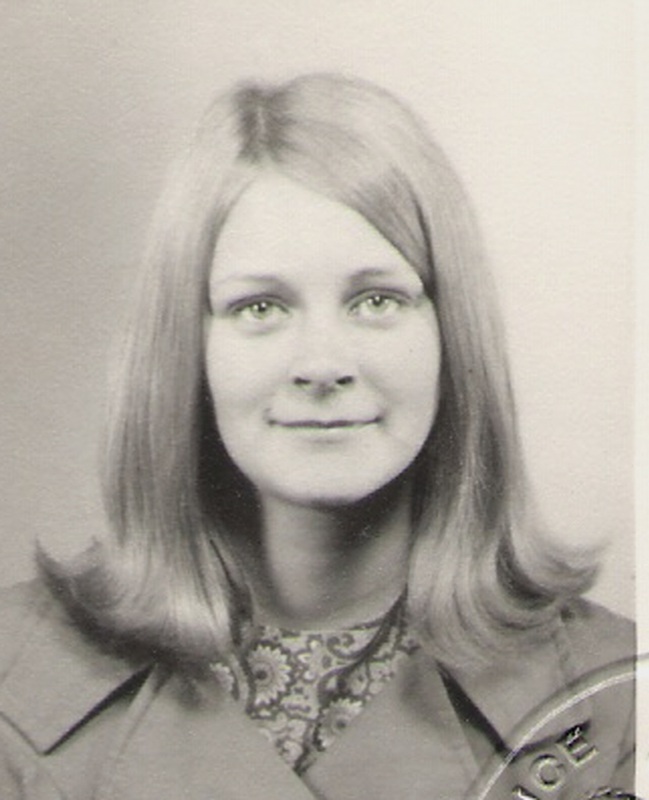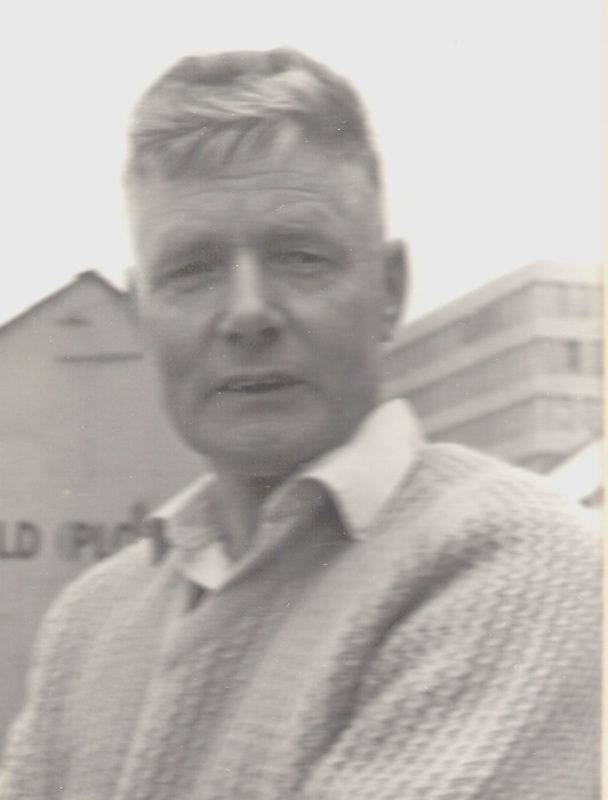At the club we found one British yacht, Islander, 56 ft long, sailed, single handed, by a retired naval chap, Tom Blackwell, with whom we have become very friendly. The next day, a Belgium boat, Roscops, arrived. We had last met in Tenerife. Both these boats are bound for Tahiti via Galapagos and Marquesas, as we are.
After waiting ten days to get through the canal, for which yachts require 4 extra crew as line handlers, we came through with Tom. Our line handlers were two 20 year old twin Irish girls and their 19 year old cousin who were hitching round the world, and an American we had met at the club. Although both boats came through together, we each had to have a pilot. The canal company is geared to take big ships through and yachts have to go through the same formalities of measurement and pilotage and pay the same rate per ton. Our canal dues came to 9 dollars 80 cents, which adds up to a loss for the company. As you can imagine, they do not seem very enthusiastic about yachts. We are very relieved to be this side and on the threshold of the Pacific at long last.
The actual trip through the canal was very interesting and somewhat tricky. Yachts go into the locks in front or behind big ships. Ships are held centrally in the lock by 4 diesel locomotives, one at each corner as it were, which have cables stretched taut to hold the ship in the centre of the lock. In the up locks the water rushes in through holes in the bottom so fast that any vessel not held rigidly in the centre would be bounced against the lock walls. Yachts have to be held manually by four very strong ropes, placed over bollards on the lock walls.
As the lock fills in 8 minutes, it is a full time job for one man to look after one rope. We came through lashed to Islander, so that we were held by his ropes and could have two persons per rope. It took us 12 hours to do the total distance of 64 miles, and we arrived at the Balboa Yacht Club just after dark.
“SHE” and WANDERER 4 had been through several weeks before, but we found Mervyn Lippiat here. Two days later MISTRAL & CANTREDI came through. We all get on famously together. Yesterday, Tom, Mervyn and I took all our gas cylinders in a taxi to get them filled. After wasting most of the morning we finally found a place that would fill them. Gas has been one of our biggest problems since we started. The number of hours spent looking for gas depots and then arguing with the managers are a dead loss. No two countries seem to use the same cylinders and connections and even when they do, the working pressures vary.
Roscops left last night and Mervyn left this morning. Tom is leaving on the day after tomorrow and so are we. All bound for Galapagos. Pierre and Julio in Cantredi and Mistral have to wait here for cash to arrive. Stella Mira has nearly reached rock bottom where cash is concerned. We have just about enough to pay harbour dues (if any) at Galapagos and Tahiti etc, but our food should last out to Aussie. The route we proposed to go is Galapagos, Marquesas, Tahiti, Cook Islands, Tonga, Fiji, and New Hebrides. We had hoped to do New Zealand and Sydney, but this will take too long. We go Brisbane because we have been told that we can earn cash there to see us over the rest of the trip.
When we arrived here there were three letters from you and one from Len waiting for me. Also one from the Bayldons in Las Palmas. Penny had about 9 letters from her various beaus. This was the first mail since one letter and 1 card in Barbados. We wrote to Antigua and asked for any mail to be sent here, but none had turned up. The camera is not working very well. When we try to wind back the film it jams and the camera had to be opened to take it out.
You say that you sent mail and a book to Las Palmas. This we have not had. Please do not send any more books to Penny or I shall throw both them and her over board. Len is wrong about Everready batteries being world wide, especially the not so standard transistor sizes. In Las Palmas a Danish chap had some flown out from Denmark for us as his sonar was the same make as ours. In the W Indies we tried on all the islands and finally for some on St Lucia, but Hong Kong, not Ever Ready. Don’t worry, we wear our harness in any wind of force 5 or over, Penny seldom leaves the cockpit in a blow, I do all the sail work. We have yet to catch our first fish. The number of hooks and lures we have lost would keep a grand banks schooner going for a year but we never seem to get them on board. Roscops tell us that they use only a plain line with a hook covered in silver paper, no wire trace, no swivel, nothing. And they catch fish almost everyday. There must be a jinx on us. Perhaps on the way to the Galapagos we shall have better luck. They say this is the richest fishing ground in the world.
The fruit and veg there is said to be choice and abundant. Stella M is really bunged up with surplus gear which we never use. I have 3 pairs of pyjamas and vests and pants and perhaps 6 or 8 shirts which I haven’t used since Vigo. Penny is the same way. Without all this surplus we would have much more room. Perhaps in Galapagos which is supposed to be very cold in winter and short of home comforts, we will be able to barter. I’m very glad you like the life in Perth but sorry that we have to impose on Len and Queen for so long. What are my chances of a job when we arrive? Or alternatively of starting up some kind of business?
The actual trip through the canal was very interesting and somewhat tricky. Yachts go into the locks in front or behind big ships. Ships are held centrally in the lock by 4 diesel locomotives, one at each corner as it were, which have cables stretched taut to hold the ship in the centre of the lock. In the up locks the water rushes in through holes in the bottom so fast that any vessel not held rigidly in the centre would be bounced against the lock walls. Yachts have to be held manually by four very strong ropes, placed over bollards on the lock walls.
As the lock fills in 8 minutes, it is a full time job for one man to look after one rope. We came through lashed to Islander, so that we were held by his ropes and could have two persons per rope. It took us 12 hours to do the total distance of 64 miles, and we arrived at the Balboa Yacht Club just after dark.
“SHE” and WANDERER 4 had been through several weeks before, but we found Mervyn Lippiat here. Two days later MISTRAL & CANTREDI came through. We all get on famously together. Yesterday, Tom, Mervyn and I took all our gas cylinders in a taxi to get them filled. After wasting most of the morning we finally found a place that would fill them. Gas has been one of our biggest problems since we started. The number of hours spent looking for gas depots and then arguing with the managers are a dead loss. No two countries seem to use the same cylinders and connections and even when they do, the working pressures vary.
Roscops left last night and Mervyn left this morning. Tom is leaving on the day after tomorrow and so are we. All bound for Galapagos. Pierre and Julio in Cantredi and Mistral have to wait here for cash to arrive. Stella Mira has nearly reached rock bottom where cash is concerned. We have just about enough to pay harbour dues (if any) at Galapagos and Tahiti etc, but our food should last out to Aussie. The route we proposed to go is Galapagos, Marquesas, Tahiti, Cook Islands, Tonga, Fiji, and New Hebrides. We had hoped to do New Zealand and Sydney, but this will take too long. We go Brisbane because we have been told that we can earn cash there to see us over the rest of the trip.
When we arrived here there were three letters from you and one from Len waiting for me. Also one from the Bayldons in Las Palmas. Penny had about 9 letters from her various beaus. This was the first mail since one letter and 1 card in Barbados. We wrote to Antigua and asked for any mail to be sent here, but none had turned up. The camera is not working very well. When we try to wind back the film it jams and the camera had to be opened to take it out.
You say that you sent mail and a book to Las Palmas. This we have not had. Please do not send any more books to Penny or I shall throw both them and her over board. Len is wrong about Everready batteries being world wide, especially the not so standard transistor sizes. In Las Palmas a Danish chap had some flown out from Denmark for us as his sonar was the same make as ours. In the W Indies we tried on all the islands and finally for some on St Lucia, but Hong Kong, not Ever Ready. Don’t worry, we wear our harness in any wind of force 5 or over, Penny seldom leaves the cockpit in a blow, I do all the sail work. We have yet to catch our first fish. The number of hooks and lures we have lost would keep a grand banks schooner going for a year but we never seem to get them on board. Roscops tell us that they use only a plain line with a hook covered in silver paper, no wire trace, no swivel, nothing. And they catch fish almost everyday. There must be a jinx on us. Perhaps on the way to the Galapagos we shall have better luck. They say this is the richest fishing ground in the world.
The fruit and veg there is said to be choice and abundant. Stella M is really bunged up with surplus gear which we never use. I have 3 pairs of pyjamas and vests and pants and perhaps 6 or 8 shirts which I haven’t used since Vigo. Penny is the same way. Without all this surplus we would have much more room. Perhaps in Galapagos which is supposed to be very cold in winter and short of home comforts, we will be able to barter. I’m very glad you like the life in Perth but sorry that we have to impose on Len and Queen for so long. What are my chances of a job when we arrive? Or alternatively of starting up some kind of business?


 RSS Feed
RSS Feed